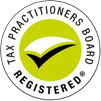Depending on the business structure you operate, you may be required to lodge different tax returns. Australian tax laws lay down specific rules and guidelines for reporting and computing amounts subject to various taxes which every business person must be familiar with or risk the assessment of penalties.
Income tax return
Sole trader
If you operate as a sole trader, you must lodge an individual tax return to report your taxable income or loss as well as any business income and other income in the form of salary and wages, dividends and rental income, less any allowable deductions that you are allowed to claim against these amounts.
Partnership
The entity must lodge a partnership tax return showing its net income which is calculated by deducting expenses and other deductions from its income. As a partner, you must also report your share in the partnership net income, salary or wage, dividends and rental income in your personal income tax return.
Trust
This entity must lodge a trust tax return showing its income less expenses and deductions. As a beneficiary of the trust, you are also required to report any income or benefit received from the trust, including any assessable income such as salary, wages, dividends and rental income.
Company
The company must lodge a company tax return showing its net income which is the amount of income less allowed deductions. The corporate income tax rate is fixed at 30% of the net taxable income. The income tax of the company is different from your personal income tax for which you need to lodge a personal income tax return.
GST Return
Your business is required to lodge a GST return if it has a projected annual GST (Goods and Services Tax) turnover of:
- At least $75,000 for business entities; and
- $150,000 for non profit organisations
If your business is not required to lodge a GST return by falling below the threshold amounts, you may still choose to register as a GST entity and lodge the GST return.
Fringe Benefit Tax Return
The Fringe Benefit Tax (FBT) is one that is paid on certain benefits employers provide to their employees or associates in place of salary or wages. Examples are the company car, low interest loan, gym membership and free tickets to concerts as entertainment benefits.
PAYG
In addition to the above mentioned tax returns, the Australian Tax Office requires employers to report the Pay As You Go taxes that they withhold. If you have employees or pay employees of another business, you are required to withhold an amount from payments you make to them and report these under the PAYG withholding system.
Other payments requiring withholding tax include:
- Payments made to company directors, if you operate a company;
- payments to foreign entities such as royalties and interest;
- payments to businesses which don’t give their ABN on an invoice or other document.




